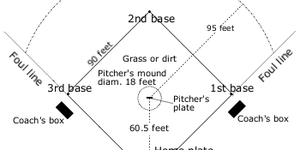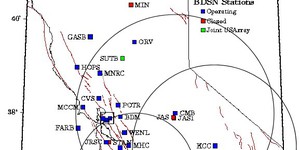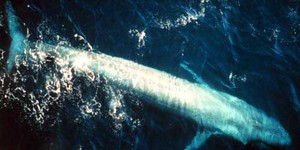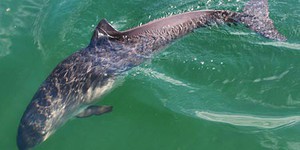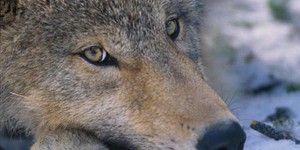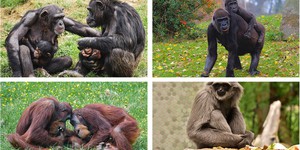Big Data Science Projects (25 results)
"Big data" is exactly what it sounds like, a really large amount of data. Science has always been at the forefront of gathering, visualizing, and trying to make sense of massive data sets. For example, think of the more than 661,000 (and counting) asteroids that have been discovered in our solar system. Or ponder that 1.2 million species have been caught, identified, classified, and catalogued on Earth. And then there are the approximately 3 billion base pairs sequenced from the human genome. Even before there was a term for it, scientists have been amassing and analyzing big data.
|
Select a resource
Sort by
|
Scientists recently found that some small drugs can stop infection by the deadly Ebola virus in
its tracks. Lab researchers found that these drugs bind to a protein that the Ebola virus uses to enter
our cells, and this is how infection is prevented. However, this also means that the bound protein no
longer functions in our cells. How might these drugs accidentally disrupt important biological processes
in our bodies? What other proteins might these drugs bind to? In this science project,…
Read more
Featured
Have you heard that garlic powder is supposed to inhibit the growth of bacteria? Which do you think would make a better disinfectant: a solution of garlic powder or a solution of bleach? This project shows you a straightforward way to compare the effectiveness of different disinfectants (or other antimicrobial agents), by measuring zones of inhibition on a culture plate.
Read more
Have you ever wondered how playing in a certain stadium affects how well the athletes perform? Major League Baseball (MLB) is played in ballparks that have their own individual quirks when it comes to the exact layout of the field. How an individual ballpark affects player performance, which is known as ballpark effects, is heavily investigated in the field of baseball. To name just a few parks and their different traits, Fenway Park (the long-time home ballpark for the Boston Red Sox in…
Read more
When an earthquake happens, how are scientists able to determine the original location of the quake? In this project, you'll use archived data from a network of seismometers to find out for yourself. You'll create your own seismograms from the comfort of your own computer with an easy-to-use webpage interface. Then you'll analyze your seismograms to determine the distance of the quake from each seismometer station. By mapping your analyzed data, you will be able to determine the location of the…
Read more
Over time, viruses evolve. Their evolution is influenced by both neutral drift, the natural mutation rate of the virus, and selective pressure from the hosts' immune systems. Scientists study a virus's genomic evolution—the changes at the nucleotide and amino acid level—to better understand how the virus is spreading and the clinical implications. You can use public databases and tools to do the same type of tracking and analysis of COVID-19 that scientists around the world do. …
Read more
The first land animals took their tentative steps out of the ocean and onto solid ground around 365 million years ago. Over millions of years, these early ancestors developed into tetrapods, including amphibians, reptiles, dinosaurs, birds, and mammals. Then, around 50 million years ago, the reverse process occurred: the mammalian ancestor of today's whales returned to the ocean. In this genomics science fair project, you will use mitochondrial protein sequencing to trace the evolution of…
Read more
Did you ever wonder about your ancient ancestors? Who they were? Where they came from? In this science project, you will investigate the secrets of your distant past as revealed by your DNA. In order to obtain a sample for DNA analysis, you will scrape a soft swab inside your mouth to collect cheek cells. The cheek cell sample will be sent to a lab for processing, and the results of the analysis will be sent to you. Based on the genetic markers in your DNA, the ancient clan that your…
Read more
Have you ever wondered what life is like for different animals, and where it is that they roam? For example, how large is the area they live in, and why do they go to different locations? While we can set up cameras to watch animals that live on land, it can more challenging to see the lives of animals that live underwater, especially in the vast oceans. In this ocean science project, you will use satellite tracking data to learn about the activity patterns of harbor porpoises. How far do they…
Read more
If you were leaving home for a long walk, how far would you go? One mile, 5 miles, 10 miles? How about 550 miles?! That's a long way, but some wolves have been known to travel that far when they are leaving their packs in search of a mate so they can form their own pack. But is that how far wolves normally travel? Try this wild wolf tracking science fair project to find out!
Read more
Scientists have known for hundreds of years that sunspot activity waxes and wanes over a cycle that lasts approximately 11 years. In the 1970's, scientists discovered that the sun periodically blasts electrified gases into space, in huge outbursts called 'coronal mass ejections,' or CMEs. This project asks the question: do CMEs follow the solar sunspot cycle?
Read more
You have probably seen figures showing how human beings are related to chimpanzees, gorillas, and other primates. In this genomics science fair project, you will use bioinformatics tools to generate your own primate family tree.
Read more
|
Explore Our Science Videos
Measure Static Electricity With An Electroscope!
Design a Seeding Machine
Make a Paper Lantern STEM Activity




